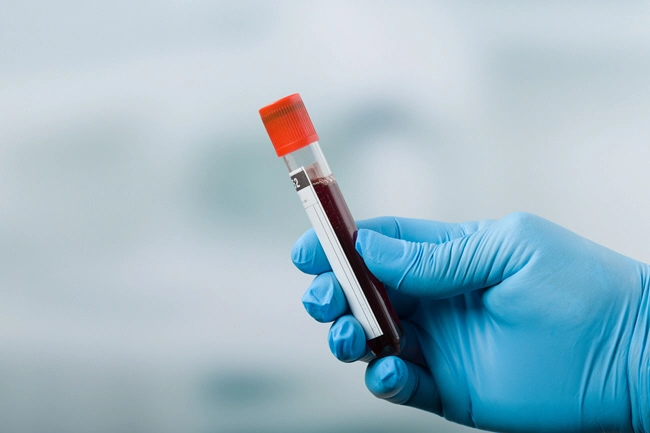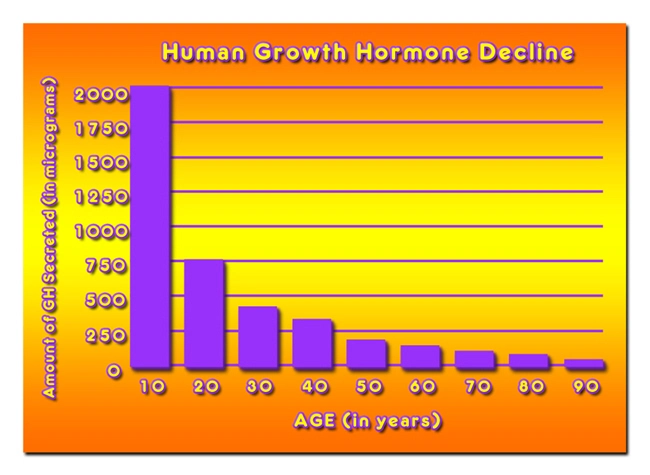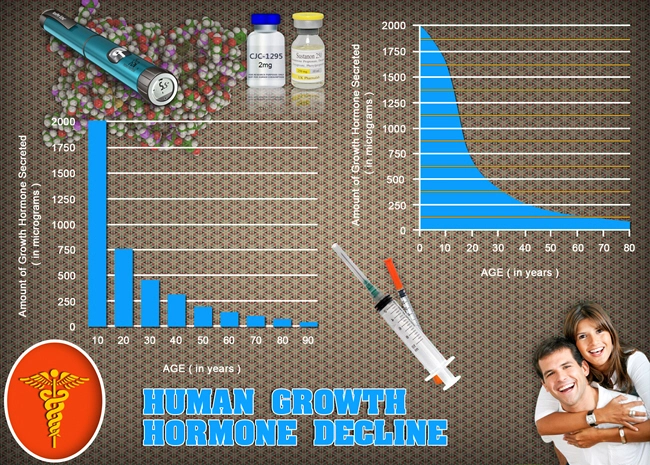
Introduction
In the digital age, social media platforms have become integral to daily life, shaping perceptions and influencing behaviors across various demographics. Among American men, the pervasive nature of social media has led to significant discussions regarding its impact on body image and mental health. This article delves into a cross-sectional analysis of how social media influences these aspects, highlighting the need for awareness and intervention strategies.
The Prevalence of Social Media Use
Social media use among American men is widespread, with platforms like Instagram, Twitter, and TikTok serving as primary sources of entertainment, information, and social interaction. A recent survey indicated that over 70% of American men engage with social media daily, a figure that underscores the platform's role in shaping modern life.
Body Image and Social Media
The portrayal of idealized male bodies on social media can lead to unrealistic expectations and negative self-perception among users. Images of muscular, fit, and often digitally enhanced male bodies are commonplace, creating a benchmark that many feel pressured to meet. This pressure can result in body dissatisfaction, a known precursor to various mental health issues.
Mental Health Implications
The correlation between social media use and mental health among American men is a growing concern. Studies have shown that excessive use of social media can lead to increased anxiety, depression, and other mental health disorders. The constant comparison to idealized images can exacerbate feelings of inadequacy and low self-esteem, further impacting mental well-being.
Cross-Sectional Analysis Findings
A cross-sectional analysis conducted across various age groups of American men revealed a significant association between social media use and negative body image. Men who reported spending more than two hours daily on social media were more likely to express dissatisfaction with their bodies and report higher levels of stress and anxiety. Conversely, those with limited social media exposure reported better mental health outcomes and higher self-esteem.
The Role of Social Comparison
Social comparison theory suggests that individuals determine their own social and personal worth based on how they stack up against others. On social media, this comparison is often skewed towards unrealistic standards, leading to a distorted self-view. American men, in particular, may feel compelled to conform to the muscular ideal perpetuated by fitness influencers and celebrities, further fueling body image concerns.
Intervention and Awareness
Addressing the impact of social media on body image and mental health requires a multifaceted approach. Educational campaigns aimed at promoting media literacy can help American men critically evaluate the content they consume. Encouraging a culture of body positivity and diversity on social media platforms can also mitigate the negative effects of idealized images.
The Importance of Support Systems
Building strong support systems is crucial for mitigating the negative impacts of social media. Encouraging open conversations about body image and mental health among peers, family, and healthcare providers can provide American men with the resources and support needed to navigate the challenges posed by social media.
Conclusion
The influence of social media on body image and mental health among American men is a complex issue that warrants further research and action. By understanding the mechanisms through which social media impacts these areas, we can develop effective strategies to promote healthier self-perceptions and mental well-being. As social media continues to evolve, so too must our approach to addressing its effects on the male population.
This cross-sectional analysis serves as a call to action for healthcare professionals, policymakers, and the community at large to prioritize mental health and body image awareness in the digital age. Through concerted efforts, we can foster a more supportive and realistic environment for American men navigating the challenges of social media.
Contact Us Today For A Free Consultation
Dear Patient,
Once you have completing the above contact form, for security purposes and confirmation, please confirm your information by calling us.
Please call now: 1-800-380-5339.
Welcoming You To Our Clinic, Professor Tom Henderson.

- Understanding and Treating Erectile Dysfunction: Causes, Diagnosis, and Options for American Men [Last Updated On: February 25th, 2025] [Originally Added On: February 25th, 2025]
- Top Fitness Trends Transforming American Men's Health and Well-being [Last Updated On: March 17th, 2025] [Originally Added On: March 17th, 2025]
- Understanding Male Infertility: Causes, Diagnosis, and Treatment Options for American Men [Last Updated On: March 18th, 2025] [Originally Added On: March 18th, 2025]
- Physical Activity's Role in Cancer Prevention for American Men: Strategies and Benefits [Last Updated On: March 18th, 2025] [Originally Added On: March 18th, 2025]
- Hydration's Vital Role in Enhancing Men's Health and Well-being in America [Last Updated On: March 18th, 2025] [Originally Added On: March 18th, 2025]
- Osteoporosis in Men: Risks, Prevention, and Strategies for Bone Health [Last Updated On: March 18th, 2025] [Originally Added On: March 18th, 2025]
- Essential Supplements for Men's Health: A Comprehensive Guide for American Males [Last Updated On: March 19th, 2025] [Originally Added On: March 19th, 2025]
- Stress and Heart Health: Impacts and Management Strategies for American Men [Last Updated On: March 19th, 2025] [Originally Added On: March 19th, 2025]
- Gout in American Men: Symptoms, Causes, and Management Strategies [Last Updated On: March 21st, 2025] [Originally Added On: March 21st, 2025]
- Breaking the Stigma: Enhancing Mental Health Support for American Men [Last Updated On: March 21st, 2025] [Originally Added On: March 21st, 2025]
- Sleep Apnea in American Men: Symptoms, Risks, and Management Strategies [Last Updated On: March 21st, 2025] [Originally Added On: March 21st, 2025]
- Work-Life Balance: Impact on American Men's Health and Strategies for Improvement [Last Updated On: March 21st, 2025] [Originally Added On: March 21st, 2025]
- Allergies in American Men: Symptoms, Management, and Impact on Quality of Life [Last Updated On: March 22nd, 2025] [Originally Added On: March 22nd, 2025]
- Meditation's Impact on Men's Mental Health: Benefits and Integration Strategies [Last Updated On: March 22nd, 2025] [Originally Added On: March 22nd, 2025]
- Gut Health Essentials for American Men: Microbiome, Diet, and Wellness [Last Updated On: March 22nd, 2025] [Originally Added On: March 22nd, 2025]
- Strength Training: Enhancing Men's Health in the U.S. with Resistance Exercises [Last Updated On: March 22nd, 2025] [Originally Added On: March 22nd, 2025]
- Alcohol's Impact on Liver Health: Risks, Stages, and Prevention for American Males [Last Updated On: March 22nd, 2025] [Originally Added On: March 22nd, 2025]
- High Cholesterol in American Men: Risks, Management, and Prevention Strategies [Last Updated On: March 23rd, 2025] [Originally Added On: March 23rd, 2025]
- Enhancing Men's Mental Health in the Workplace: Challenges and Strategies [Last Updated On: March 23rd, 2025] [Originally Added On: March 23rd, 2025]
- Obesity and Cancer Risks in American Men: Understanding and Mitigation Strategies [Last Updated On: March 23rd, 2025] [Originally Added On: March 23rd, 2025]
- Dietary Fiber: Essential for Men's Health and Disease Prevention [Last Updated On: March 23rd, 2025] [Originally Added On: March 23rd, 2025]
- Kidney Stones in American Men: Prevention, Management, and Health Strategies [Last Updated On: March 24th, 2025] [Originally Added On: March 24th, 2025]
- Effective Smoking Cessation Strategies for American Men's Health and Well-being [Last Updated On: March 24th, 2025] [Originally Added On: March 24th, 2025]
- Mental Health Days: Essential for American Men's Well-being and Productivity [Last Updated On: March 24th, 2025] [Originally Added On: March 24th, 2025]
- Plant-Based Diets: Enhancing Men's Health from Heart to Mind [Last Updated On: March 25th, 2025] [Originally Added On: March 25th, 2025]
- Dental Health's Crucial Role in Men's Overall Well-being and Disease Prevention [Last Updated On: March 25th, 2025] [Originally Added On: March 25th, 2025]
- Stroke Risks and Prevention Strategies for American Men [Last Updated On: March 25th, 2025] [Originally Added On: March 25th, 2025]
- Tai Chi: Enhancing Men's Health in the U.S. - Physical, Mental, Cognitive Benefits [Last Updated On: March 25th, 2025] [Originally Added On: March 25th, 2025]
- Diet's Impact on Prostate Health: Foods to Embrace and Avoid [Last Updated On: March 25th, 2025] [Originally Added On: March 25th, 2025]
- Annual Physicals: Vital for Men's Health, Early Detection, and Personalized Care [Last Updated On: March 25th, 2025] [Originally Added On: March 25th, 2025]
- Managing Anxiety in American Men: Tools and Techniques for Mental Health [Last Updated On: March 25th, 2025] [Originally Added On: March 25th, 2025]
- Depression in American Men: Holistic Treatment Approaches and Breaking Stigma [Last Updated On: March 25th, 2025] [Originally Added On: March 25th, 2025]
- Asthma in American Men: Prevalence, Management, and Lifestyle Impact [Last Updated On: March 26th, 2025] [Originally Added On: March 26th, 2025]
- Seasonal Affective Disorder in American Men: Symptoms, Impact, and Management Strategies [Last Updated On: March 26th, 2025] [Originally Added On: March 26th, 2025]
- Gut-Brain Axis: Stress Impact on Digestive Health in American Males [Last Updated On: March 26th, 2025] [Originally Added On: March 26th, 2025]
- Exercise Benefits for American Men Managing Diabetes: Enhancing Health and Well-being [Last Updated On: March 26th, 2025] [Originally Added On: March 26th, 2025]
- Proactive Health Strategies for American Men: Screenings, Lifestyle, and Mental Well-being [Last Updated On: March 26th, 2025] [Originally Added On: March 26th, 2025]
- Caffeine's Impact on American Men: Health, Performance, and Consumption Guidelines [Last Updated On: March 26th, 2025] [Originally Added On: March 26th, 2025]
- Diet and Heart Disease Prevention in American Males: Key Components and Recommendations [Last Updated On: March 26th, 2025] [Originally Added On: March 26th, 2025]
- Pilates: Enhancing Men's Health and Fitness in the U.S. [Last Updated On: March 26th, 2025] [Originally Added On: March 26th, 2025]
- Cycling Benefits for American Men: Health, Fitness, and Well-being [Last Updated On: March 27th, 2025] [Originally Added On: March 27th, 2025]
- Insomnia's Impact on Men's Health: Causes, Effects, and Management Strategies [Last Updated On: March 27th, 2025] [Originally Added On: March 27th, 2025]
- Swimming: Enhancing Men's Health in America Through Fitness and Wellness [Last Updated On: March 27th, 2025] [Originally Added On: March 27th, 2025]
- Hemorrhoids in American Men: Causes, Symptoms, and Management Strategies [Last Updated On: March 27th, 2025] [Originally Added On: March 27th, 2025]
- Sleep's Crucial Role in Weight Management for American Men [Last Updated On: March 27th, 2025] [Originally Added On: March 27th, 2025]
- Eye Exams: Essential for Men's Vision and Overall Health Monitoring [Last Updated On: March 28th, 2025] [Originally Added On: March 28th, 2025]
- Arthritis in Men: Prevention, Management, and Enhancing Quality of Life [Last Updated On: March 28th, 2025] [Originally Added On: March 28th, 2025]
- Promoting Men's Mental Health: The Urgent Need for Regular Screening and Support [Last Updated On: March 28th, 2025] [Originally Added On: March 28th, 2025]
- Varicose Veins in American Men: Causes, Symptoms, and Treatment Options [Last Updated On: March 28th, 2025] [Originally Added On: March 28th, 2025]
- Social Connections: Vital for American Men's Mental Health and Well-being [Last Updated On: March 29th, 2025] [Originally Added On: March 29th, 2025]
- Hiking's Comprehensive Health Benefits for American Men: Physical, Mental, and Social [Last Updated On: March 31st, 2025] [Originally Added On: March 31st, 2025]
- Rowing: Enhancing Health and Fitness for American Men [Last Updated On: April 1st, 2025] [Originally Added On: April 1st, 2025]
- Pollution's Multifaceted Impact on American Men's Health: Risks and Mitigation Strategies [Last Updated On: April 1st, 2025] [Originally Added On: April 1st, 2025]
- Antioxidants: Key to Health for American Men - Heart, Cancer, Aging, Eye Benefits [Last Updated On: April 1st, 2025] [Originally Added On: April 1st, 2025]
- Breaking Stigma: The Vital Role of Mental Health Education for American Men [Last Updated On: April 2nd, 2025] [Originally Added On: April 2nd, 2025]
- Understanding and Managing Migraines in American Men: Symptoms, Triggers, and Strategies [Last Updated On: April 4th, 2025] [Originally Added On: April 4th, 2025]
- Skin Cancer in American Men: Risks, Prevention, and Early Detection Strategies [Last Updated On: April 5th, 2025] [Originally Added On: April 5th, 2025]
- Alcohol and Mental Health in American Males: A Bidirectional Impact and Solutions [Last Updated On: April 6th, 2025] [Originally Added On: April 6th, 2025]
- Community Impact on American Men's Health and Wellbeing: Support, Prevention, and Engagement [Last Updated On: April 6th, 2025] [Originally Added On: April 6th, 2025]
- Preventing and Managing Back Pain in American Men: Causes, Strategies, and Lifestyle Tips [Last Updated On: April 8th, 2025] [Originally Added On: April 8th, 2025]
- Martial Arts: Enhancing Men's Health and Wellness in the U.S. [Last Updated On: April 9th, 2025] [Originally Added On: April 9th, 2025]
- Technology Reshaping Men's Health: Telemedicine, Wearables, and Digital Apps in the U.S. [Last Updated On: April 11th, 2025] [Originally Added On: April 11th, 2025]
- Managing Panic Attacks: Strategies and Support for American Men [Last Updated On: April 11th, 2025] [Originally Added On: April 11th, 2025]
- Running: Enhancing Men's Health from Heart to Mind in America [Last Updated On: April 11th, 2025] [Originally Added On: April 11th, 2025]
- Men's Hearing Health: Risks, Prevention, and Technological Solutions [Last Updated On: April 12th, 2025] [Originally Added On: April 12th, 2025]
- Essential Vitamins for Men's Health: Enhancing Well-being and Preventing Disease [Last Updated On: April 12th, 2025] [Originally Added On: April 12th, 2025]
- Obesity and Diabetes in American Men: Risks, Impacts, and Management Strategies [Last Updated On: April 12th, 2025] [Originally Added On: April 12th, 2025]
- Soccer's Impact on Men's Health: Cardiovascular, Muscle, and Mental Benefits [Last Updated On: April 15th, 2025] [Originally Added On: April 15th, 2025]
- Managing IBS in American Men: Symptoms, Triggers, and Effective Strategies [Last Updated On: April 15th, 2025] [Originally Added On: April 15th, 2025]
- Lung Cancer in American Men: Risks, Symptoms, Prevention, and Treatment Strategies [Last Updated On: April 15th, 2025] [Originally Added On: April 15th, 2025]
- Diet and Mental Health: Key Insights for American Men's Well-being [Last Updated On: April 16th, 2025] [Originally Added On: April 16th, 2025]
- Obesity and Heart Disease in American Men: Risks, Mechanisms, and Prevention Strategies [Last Updated On: April 17th, 2025] [Originally Added On: April 17th, 2025]
- Basketball's Health Benefits for American Men: Physical, Mental, and Social Wellness [Last Updated On: April 17th, 2025] [Originally Added On: April 17th, 2025]
- Transforming Men's Health: Tailored Mental Health Awareness Campaigns for American Men [Last Updated On: April 18th, 2025] [Originally Added On: April 18th, 2025]
- Mental Health First Aid: A Vital Tool for American Men's Well-being [Last Updated On: April 18th, 2025] [Originally Added On: April 18th, 2025]
- Family Support: Enhancing Health and Well-being of American Men [Last Updated On: April 18th, 2025] [Originally Added On: April 18th, 2025]
- CrossFit: Enhancing Men's Health Through Comprehensive Fitness Regimen [Last Updated On: April 19th, 2025] [Originally Added On: April 19th, 2025]
- Joint Pain in Men: Causes, Prevention, and Management Strategies for American Males [Last Updated On: April 20th, 2025] [Originally Added On: April 20th, 2025]
- Socioeconomic Factors Shaping Health Outcomes for American Men: A Comprehensive Analysis [Last Updated On: April 21st, 2025] [Originally Added On: April 21st, 2025]
- Prostate Cancer Screening Enhances Survival: Importance of Early Detection in American Men [Last Updated On: April 22nd, 2025] [Originally Added On: April 22nd, 2025]








